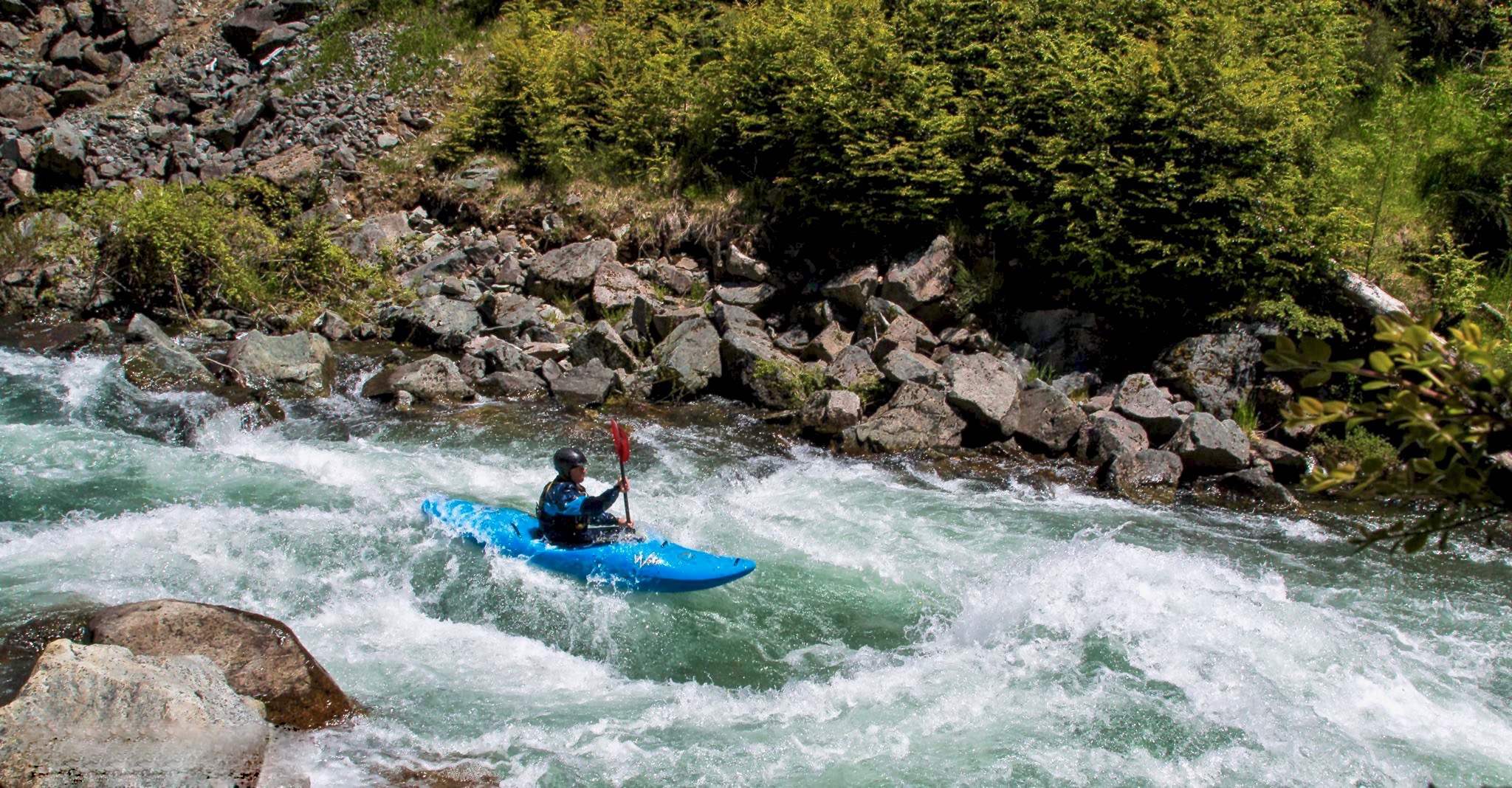 Photo: Constanza Dougnac
Photo: Constanza DougnacRed por los Ríos Libres - Just a few weeks after the positive news about the final end of Hidroaysén, the Chilean Free-Flowing Rivers Network– formed by citizen groups, NGOs and individuals- expressed their joy at this great achievement. They also shared a conviction that there is still much to be done, given so many rivers are still threatened.
Gathering under the banner of PuescoFest in Curarrehue, along the imposing Trancura River in Chile’s Araucanía region, the river defenders reaffirmed their efforts and determination to help officials and the public understand the important societal and ecological values of rivers. “It has become the norm in Chile to talk about river flows being lost to the sea. Not only does this show an enormous attempt to deceive the general public, but it’s also a denial of the natural cycle,” issued the Network in a statement. Likewise, they called upon all communities threatened by interventions to defend their rivers and show how destroying rivers is not a sign of development for the country.
The meeting included a visit by the Executive Director of Klamath Riverkeeper, Konrad Fisher, who talked about the positive experience in the Klamath River watershed. The Klamath straddles California and Oregon, and in 2020 will become the site of the largest dam removal in history. The historic move was a collaborative effort between several local indigenous groups, communities, environmental lawyers and NGOs.
The gathering ended on the final day of the festival, with participants agreeing to continue advancing on training, communications, research and advocacy. In addition, they issued an international call to support the communities of the Ñuble River. “As the Free-Flowing Rivers Network, we declare that free-flowing rivers are for the people,” said Patrick Lynch of Futaleufu Riverkeeper. “We oppose any intervention that does not meet the dreams of the people in Chile to protect their rivers and serve as an exemplary model for the world.”
Drama on the Ñuble
The Ñuble watershed, which drains a section of the Andes Mountains and foothills, forms part of the Laguna del Laja-Nevados de Chillán Biological Corridor. This site was declared a UNESCO Biosphere Reserve in 2011.
Among issues addressed at the gathering was the troubling situation of this river, where the Ñuble Hydroelectric Power Plant (Central Ñuble) is being built. The project threatens to destroy the ecosystems, landscapes and economic benefits of an area with one of the highest levels of ecological diversity in Chile.
The Central Ñuble project is owned by the company Eléctrica Puntilla, through its subsidiary HidroÑuble. The company has six plants in operation and seven projects in its portfolio. Principal shareholders include Sociedad del Canal de Maipo, Fundación San Carlos de Maipo, Aguas Andinas, Concha y Toro, and the National Institute of Agricultural Research.
The dam was approved by Chile’s Environmental Assessment Service (SEA), but faces strong opposition from a large sector of the town of San Fabián de Alico. The town has held massive demonstrations denouncing breaches by the company and demanding oversight by the Superintendency of Environment (SMA). According to residents, “the HidroÑuble project has been criticized for a number of reasons, including the brutal intervention of native forests and local fauna.” They denounce the fact that HidroÑuble’s Environmental Qualification Resolution (RCA) expired back in 2012, even though the company continues operating. They also indicated the HidroÑuble project can’t be branded as a run-of-river plant, which is a more “friendly” environmental alternative, given it is actually a reservoir. In other words, it is still a dam in disguise.
Recently, the company in charge of the project renounced its water rights in several other watersheds but is maintaining HidroÑuble, even though the estimated start date has been pushed back until 2022. The Ñuble Libre movement, which is part of the Free-Flowing Rivers Network, has repeatedly denounced faults in the evaluation studies and irregularities in the plant’s approval.
PuescoFest
This year, PuescoFest cemented its status as one of the most important events for bringing together local communities working on the defense of their territory. PuescoFest has become a model for other parts of the country and throughout the continent, both because of its family environment and for the tremendous sense of collaboration. More than 70 volunteers dedicated their time and their love for the rivers and local communities at the festival.
The following movements and groups participated in the meeting: Ética en los Bosques, Ñuble Libre, Futaleufu Riverkeeper, Ecosistemas, NGO FIMA, Fundación Hualo, Red Social Ecolinares, Los Queñes Sin Represas Defense Council, Bestias del Sur Salvaje, La Micro Cultural Center, and the visit from Klamath Riverkeeper.
Other members of the Network include: Geute Conservación Sur, Codesa, Chile Sustentable, Defensores del Alto Maule, Fundación Tantí, Fundación Origen, Fundación Newenko, No Alto Maipo, and individuals committed to the defense and protection of our rivers.





.gif)



